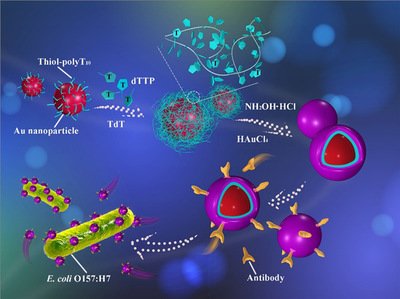Preparation and Properties of Biochemical Materials
News 2025-03-25
Biochemical materials, or bio-based materials, are a class of materials derived from biological sources or produced through biological processes. The preparation and properties of biochemical materials are critical factors determining their applicability and performance in various fields. Below is a detailed discussion on the preparation and properties of biochemical materials.
Preparation of Biochemical Materials
The preparation of biochemical materials often involves complex biochemical processes and may include the following steps:
1.Raw Material Selection: The choice of raw materials is crucial and usually depends on the specific application and desired properties of the final material. Common raw materials include natural polymers such as proteins, polysaccharides, and nucleic acids, as well as biomass derived from plants, animals, or microorganisms.
2.Extraction and Purification: Extraction involves isolating the desired biochemical components from the raw material. This may involve physical methods such as crushing, grinding, or filtration, as well as chemical methods such as solvent extraction or precipitation. Purification steps are then necessary to remove impurities and concentrate the desired component.
3.Modification and Processing: To tailor the properties of the biochemical material to specific applications, modification steps such as chemical modification, cross-linking, or blending with other materials may be required. Processing techniques such as extrusion, molding, or spinning may also be used to form the material into the desired shape and size.
4.Quality Control and Testing: After preparation, biochemical materials undergo rigorous quality control testing to ensure they meet the specified standards for purity, safety, and performance.
Properties of Biochemical Materials
Biochemical materials exhibit a range of unique properties that make them suitable for various applications. These properties include:
1.Biodegradability: Biochemical materials are often biodegradable, meaning they can be broken down by microorganisms in the natural environment. This reduces waste accumulation and environmental pollution.
2.Biocompatibility: Many biochemical materials are biocompatible, meaning they do not cause adverse reactions when in contact with living tissues. This makes them ideal for medical applications such as implants or drug delivery systems.
3.Renewability: Biochemical materials derived from renewable sources such as plants or microorganisms can contribute to sustainable development by reducing reliance on non-renewable resources.
4.Versatility: The properties of biochemical materials can be tailored through modification and processing techniques to meet the specific needs of different applications. For example, they can be made more rigid or flexible, more hydrophilic or hydrophobic, or with enhanced mechanical strength.
5.Performance: Depending on their composition and processing, biochemical materials can exhibit excellent performance properties such as high tensile strength, good elasticity, and resistance to chemicals or temperature extremes.
Applications of Biochemical Materials
Due to their unique properties, biochemical materials have a wide range of applications in various fields:
1.Medical and Healthcare: Biochemical materials are commonly used in medical devices such as sutures, implants, and drug delivery systems. Their biocompatibility and biodegradability make them ideal for these applications.
2.Packaging: Biochemical materials such as polylactic acid (PLA) are increasingly used in packaging due to their biodegradability and reduced environmental impact compared to traditional plastics.
3.Agriculture: Biochemical materials can be used as fertilizers, pesticides, or soil conditioners to improve crop yields and soil health.
4.Electronics: Conductive biochemical materials are being explored for applications in flexible electronics such as wearable devices and organic solar cells.
5.Textiles: Biochemical materials can be used to produce eco-friendly textiles with enhanced properties such as moisture wicking or UV resistance.
In conclusion, biochemical materials offer a promising alternative to traditional materials due to their unique properties and potential for sustainable development. The preparation of these materials involves complex biochemical processes and requires careful selection of raw materials, extraction and purification techniques, modification and processing steps, and quality control testing. With ongoing research and development, the applications of biochemical materials are expected to expand further in the future.



